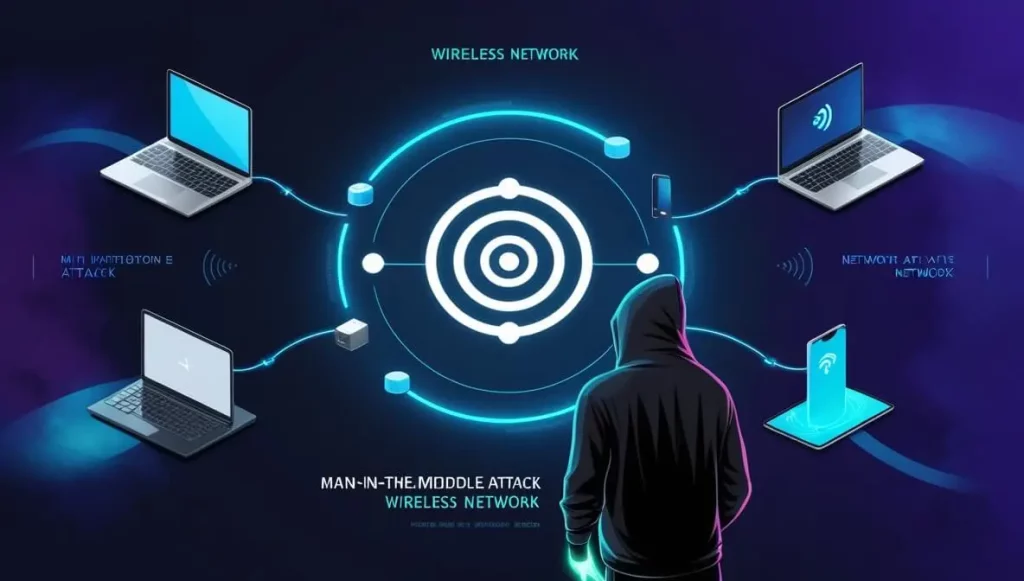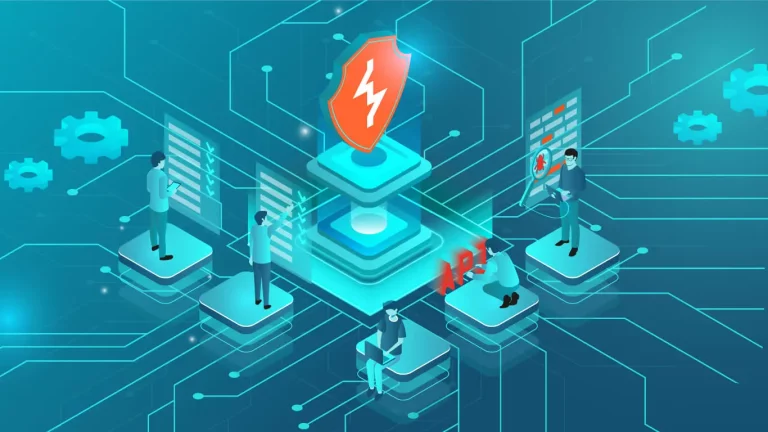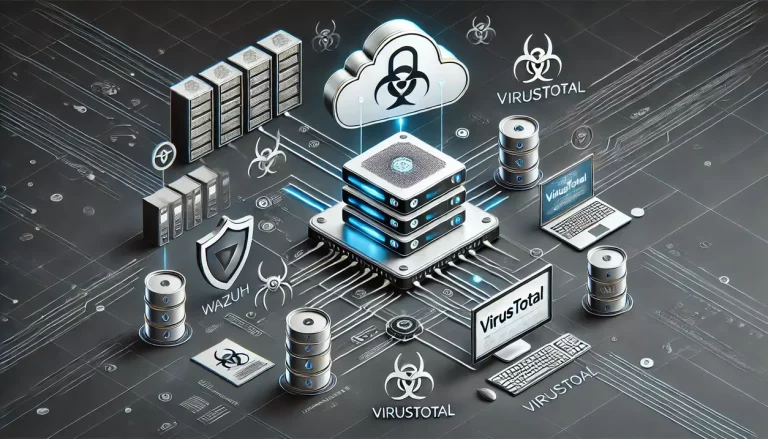A Man-in-the-Middle (MitM) attack is a cybersecurity threat where an attacker intercepts communication between two parties without their knowledge. This type of attack can be especially dangerous on wireless networks, as these networks are often less secure than wired connections, and attackers can exploit their vulnerabilities.
How MitM Attacks Work:
- The attacker positions themselves between the victim and the router or another communication endpoint.
- The attacker can intercept, alter, or steal sensitive information such as login credentials, personal data, or financial details.
- Victims believe they are communicating directly with a legitimate server (e.g., their bank or email provider), but the attacker relays and manipulates this communication to gain unauthorized access to data.
Key Dangers of MitM Attacks on Wireless Networks:
- Data Interception: Attackers can capture sensitive data like usernames, passwords, and credit card information, leading to identity theft or financial fraud.
- Session Hijacking: In some cases, attackers can hijack active sessions (such as online banking or social media) to impersonate the victim.
- Phishing and Data Manipulation: Attackers can alter the information exchanged between the victim and the service (e.g., redirecting to a malicious site) to trick them into providing sensitive data or downloading malware.
- Widespread Vulnerability: Public or poorly secured Wi-Fi networks make it easier for attackers to conduct MitM attacks, as they often lack encryption or strong authentication measures.
Dangers of Connecting to Public Networks
Public Wi-Fi networks, such as those in cafes, airports, or hotels, are convenient but inherently insecure. Here’s why:
- Unencrypted Data Traffic: Many public networks don’t use encryption protocols like WPA2 or WPA3, meaning the data transmitted over these networks can be easily intercepted by attackers.
- Fake Hotspots: Attackers can set up rogue access points or fake Wi-Fi networks that mimic legitimate ones, tricking users into connecting. Once connected, all traffic can be monitored or manipulated.
- Lack of Network Security: Public Wi-Fi networks typically have poor security measures, making it easier for attackers to perform packet sniffing (capturing data packets) or other malicious activities.
- Device Vulnerability: Connecting to unsecured public Wi-Fi exposes devices to malware attacks, as they are more susceptible to vulnerabilities in a shared network environment.
How a VPN Can Protect You
A Virtual Private Network (VPN) offers an effective defense against the dangers of MitM attacks, especially on public or compromised networks. A VPN works by creating an encrypted tunnel between your device and a secure server, ensuring that all data transmitted between the two is protected from prying eyes.
Benefits of Using a VPN:
- End-to-End Encryption: A VPN encrypts all the traffic that passes between your device and the VPN server. Even if an attacker successfully executes a MitM attack, the data they intercept will be scrambled and unreadable.
- Anonymity and Privacy: VPNs mask your IP address and encrypt your internet activity, making it difficult for attackers or third parties to track your online behavior or steal your data.
- Protection on Compromised Networks: Even if the wireless router is compromised or an attacker manages to intercept your connection, the encryption provided by a VPN ensures that the attacker cannot decipher the information being transmitted.
- Bypassing Rogue Hotspots: A VPN can help prevent falling victim to fake hotspots by ensuring that all connections are routed through secure, encrypted tunnels, regardless of the network’s authenticity.
Why Use a VPN on Public Networks?
Public networks are frequent targets of cyberattacks due to their weak security, and a VPN mitigates these risks in several ways:
- Secure Your Data: A VPN encrypts all traffic, preventing anyone on the same public network from spying on your data, even if the network itself is insecure.
- Avoid Identity Theft: By securing your login credentials and other personal information, a VPN can prevent identity theft and other malicious activities.
- Unblock Restricted Content: Some public networks may restrict access to certain websites or services. A VPN allows you to bypass these restrictions while maintaining a secure connection.
Conclusion
MitM attacks and public Wi-Fi networks pose significant threats to your privacy and data security. Connecting to unsecured networks without proper protection can lead to identity theft, data breaches, and unauthorized access to sensitive information.
Using a VPN is a highly effective way to safeguard your data, even if the wireless network is compromised. By encrypting your internet traffic, a VPN ensures that attackers cannot intercept or manipulate your communications, providing peace of mind in any network environment.





